Decoding the EU Elections: Insights from Experts across Europe
From 6 to 9 June, citizens in 27 European member states headed to the polls to cast their vote in this year's EU election—one of many in what has been termed a “super election year.” The results not only bear significant implications for the future of the European Union but also have substantial ramifications for Europe’s position in a shifting international order. Below, eight former and current fellows within the IWM and ERSTE Foundation’s Europe’s Futures program weigh in on the outcome, each providing an expert perspective on an election that is sure to reconfigure the political landscape in Brussels and beyond.
Alberto Alemanno, Jean Monnet Professor of European Union Law at HEC Paris and 2023/2024 Europe’s Futures Fellow:
.jpg)
These elections boiled down to 27 parallel ballots, so failed to provide a clear direction for the EU. Instead, they reveal a set of disaggregated, country-by-country trends, with contradictory results for the same political forces across the union. Contrary to some alarmist headlines in the run-up, these EU elections have not given the EU away to the Far Right. Far-right, anti-establishment parties secured approximately 25% of the 720 seats in the EU parliament, but they won’t be able to unite and call the shots. Instead, the pro-EU majority—which has run the EU over the past 50 years—holds. It should be able to form a parliamentary majority supporting the next European Commission and identify a clear set of political priorities for the next five years. The question remains whether and to which extent this pro-EU majority grouping will need to accept support to pass legislation, either from the Left (such as from the reduced Greens) or the Right, from Giorgia Meloni’s Brothers of Italy. Far-right, anti-establishment parties may be in government, directly or indirectly, in a dozen EU member states, including founding states such as Italy and the Netherlands, where they have gained unprecedented respectability, but the same normalization has not yet occurred at the EU level. It is against this backdrop that the choice of the next EU Commission president will play out, as that individual will be called upon to shape a parliamentary majority that, for the first time, might not be permanent throughout the five-year cycle. Instead, we can expect the emergence of a new balance of power depending on the issue at hand. If EU climate ambitions risk becoming a collateral victim of this process, it’s the broader EU traditionally integrationist agenda that is at stake. Enlargement of the union is likely to be slowed down or even paused under the far-right influence. The next long-term budget, due to be negotiated by the parliament in 2026, is set to shrink. This may create a dangerous gap between citizens’ expectations of the union’s ability to address big challenges and the means it has to do so. This can only damage the EU’s credibility and benefit the new far-right political class among their nationalistic, Europhobic, and xenophobic constituencies. From this perspective, these results look likely to accelerate the shift to the right that has already been taking place within and across the EU. This might lead to an unparalleled and regressive transformation of what may realistically be expected from the EU project. (Photo: Zsolt Marton)
Rosa Balfour, director of Carnegie Europe and 2018/2019 Europe’s Futures Fellow:
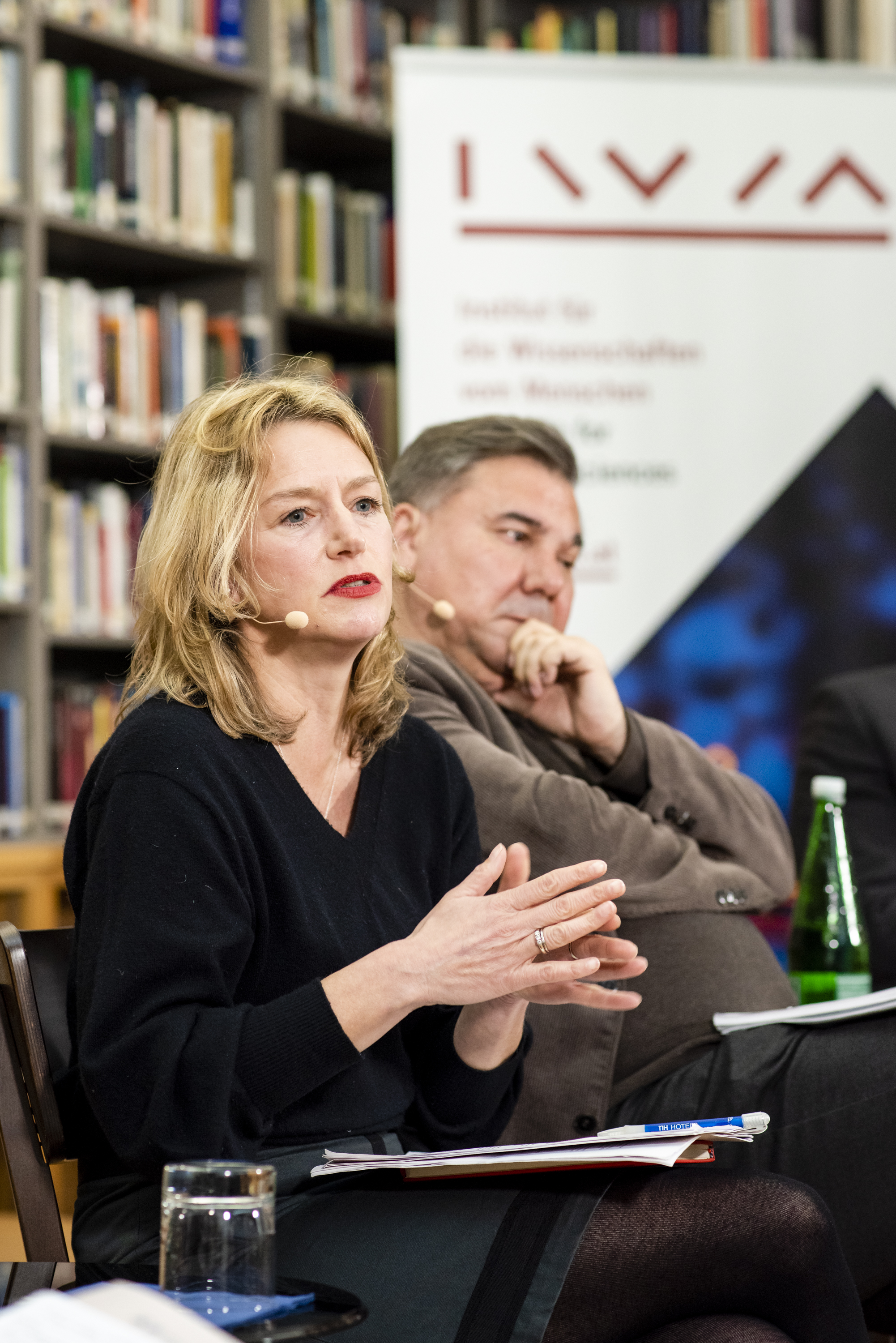 As the dust settles on the European Parliament election results, it is worth thinking through how the incoming leadership will cope with the big challenges facing Europe at a dangerous time. Europe’s security is under threat by Russia’s invasion of Ukraine. Europeans can be expected to support Ukraine in the short term – that is, until the US goes to vote in November this year. Then the uncertainty around the policy of a possible Presidency of Donald Trump could pulverize EU unity, with member states splintering to reposition themselves vis-à-vis the US. A ‘party of peace’ that Viktor Orban has been advocating could gain momentum among radical-right voters, but also with some on the left. Should Joe Biden win the US elections, the EU would still need to address two long-term consequences of Russia’s aggression: build up its security and defense capacity and enlarge to Eastern Europe and the Balkans. Both require vision, leadership, strategy, cooperation among member states and with NATO, willingness to reform, and the financial resources to carry through what would be a redrawing of Europe’s security architecture. Daunting tasks, with France and Germany so weakened. The second basket of challenges is the climate emergency. The big winner of these elections, the center-right, has already indicated a willingness to tilt towards the surging radical right and roll back or water down the ambitions set out in the EU’s Green Deal. With the defeat of the Greens, Europe’s climate policies are at grave risk—and with them the future of the planet and of the next generations. Then there is Europe’s economy, falling behind the US and China—in innovation, competitiveness, and productivity—and caught in between great power rivalry. Upgrading the EU’s economy would require doing more together under the supervision of an executive that monitors the implementation and rule of law in economic governance at a time when nationalism and protectionism are returning with a vengeance. Leadership will have to come from the EU’s member states. But the European Parliament has a special role to play during the next five years: agree with the other institutions on financing the policies that will enable Europe to shape its future in the face of adversity. (Photo: Zsolt Marton)
As the dust settles on the European Parliament election results, it is worth thinking through how the incoming leadership will cope with the big challenges facing Europe at a dangerous time. Europe’s security is under threat by Russia’s invasion of Ukraine. Europeans can be expected to support Ukraine in the short term – that is, until the US goes to vote in November this year. Then the uncertainty around the policy of a possible Presidency of Donald Trump could pulverize EU unity, with member states splintering to reposition themselves vis-à-vis the US. A ‘party of peace’ that Viktor Orban has been advocating could gain momentum among radical-right voters, but also with some on the left. Should Joe Biden win the US elections, the EU would still need to address two long-term consequences of Russia’s aggression: build up its security and defense capacity and enlarge to Eastern Europe and the Balkans. Both require vision, leadership, strategy, cooperation among member states and with NATO, willingness to reform, and the financial resources to carry through what would be a redrawing of Europe’s security architecture. Daunting tasks, with France and Germany so weakened. The second basket of challenges is the climate emergency. The big winner of these elections, the center-right, has already indicated a willingness to tilt towards the surging radical right and roll back or water down the ambitions set out in the EU’s Green Deal. With the defeat of the Greens, Europe’s climate policies are at grave risk—and with them the future of the planet and of the next generations. Then there is Europe’s economy, falling behind the US and China—in innovation, competitiveness, and productivity—and caught in between great power rivalry. Upgrading the EU’s economy would require doing more together under the supervision of an executive that monitors the implementation and rule of law in economic governance at a time when nationalism and protectionism are returning with a vengeance. Leadership will have to come from the EU’s member states. But the European Parliament has a special role to play during the next five years: agree with the other institutions on financing the policies that will enable Europe to shape its future in the face of adversity. (Photo: Zsolt Marton)
Ieva Česnulaitytė, founding head of research and learning at DemocracyNext and 2023/2024 Europe’s Futures Fellow:
.png)
The results of the European Elections have shown that governments across the continent struggle to address the disillusionment of citizens with a current political system that does not provide genuine opportunities for influencing decisions that affect their lives. At the same time, it presents an opportunity to rebuild these fractured relationships of trust by meaningfully involving people in public decision making from local to national and all the way to the European level and address the democratic deficit. We can look to democratic innovations such as Citizens’ Assemblies for inspiration on how to tap into the collective wisdom of people from all walks of life and make better decisions together. A “deliberative wave” has been slowly rising in Europe, sowing seeds of hope. If we catch it, the next European Elections might look very different. (Photo: private)
Judy Dempsey, senior fellow at Carnegie Europe and 2020/2021 Europe’s Futures Fellow:
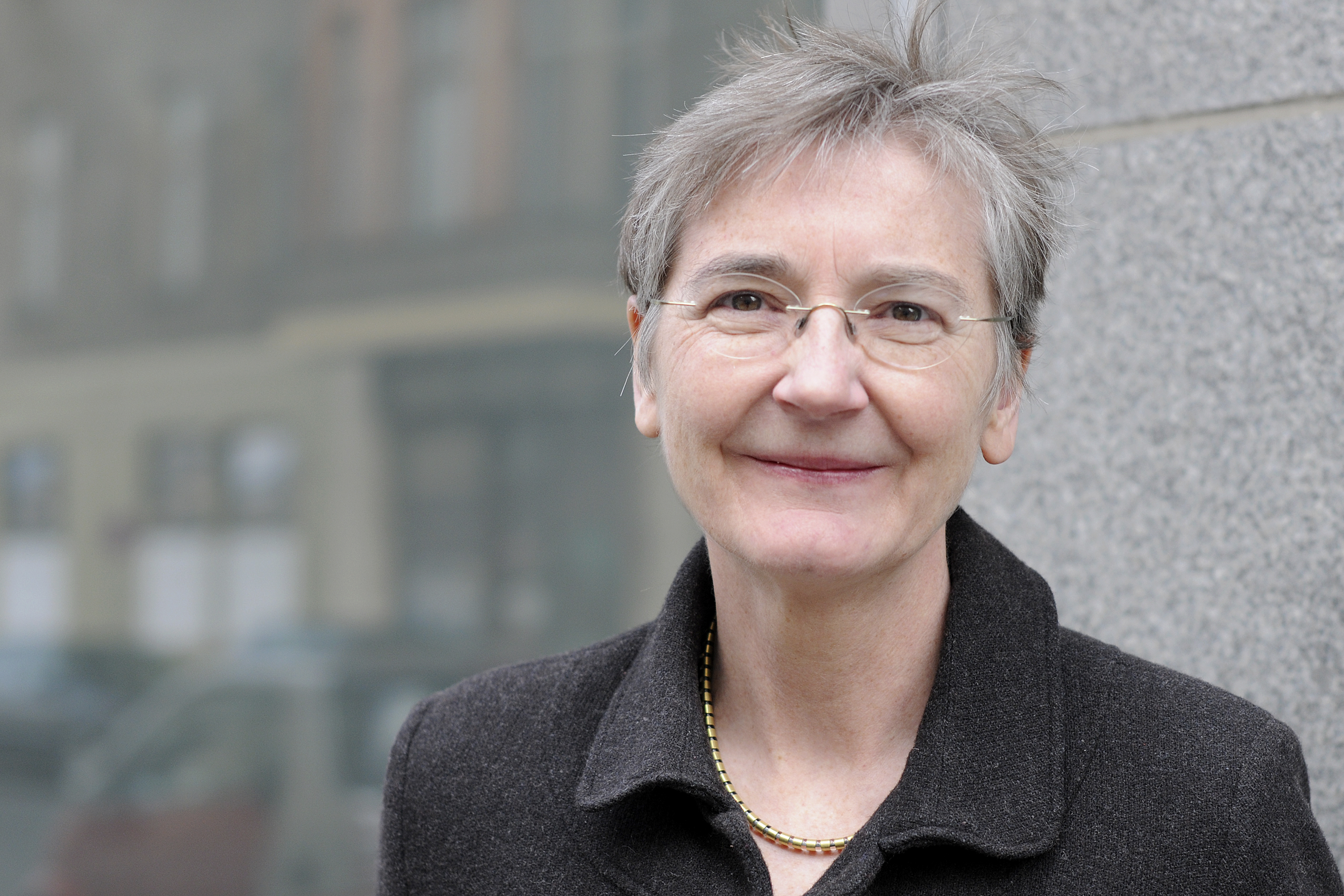
If the European agenda in the coming five years was going to focus on integration, the outcome of the European Parliament elections dealt it a heavy blow. The reason is that France and Germany, once the drivers of integration, are not in a position to revive the momentum for now. Chancellor Olaf Scholz never picked up on President Emmanuel Macron's calls for greater integration and a more robust defense policy. It is now too late to respond. Macron and his party have been severely weakened, while Marine le Pen's far-right party is riding high. On top of that is Macron's decision to hold elections to the National Assembly this month. Uncertainty prevails. Next door in Germany, the far-right wing AfD did very well, coming in second after the conservative Christian Democrats and well ahead of Scholz's SPD and his coalition partners, the Greens and Free Democrats. Scholz has been seriously weakened, too. The German government, similar to France, now has little room to push for more Europe. Even though the center-right European People's Party is the largest political grouping in the Parliament, it is not enough to reform the EU. Without strong and pro-EU leadership in Berlin and Paris, the short-term prospects for a Europe focused on integration, defense, and values are, to put it mildly, grim. (Photo: private)
Ivana Dragičević, journalist at N1 television and 2022/2023 Europe’s Futures Fellow:
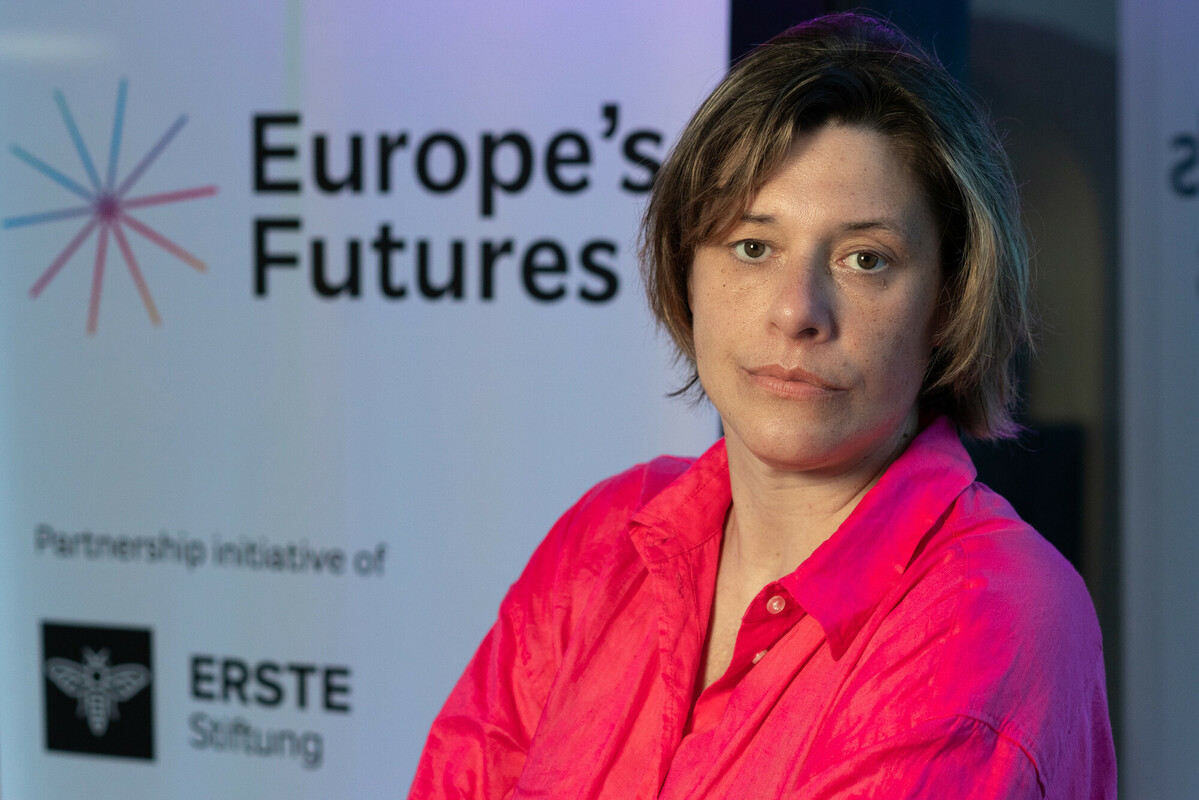
The certainty that Europe will prevail, that it will always be able to adapt to challenges coming its way, and that its center holds, reiterated by Ursula von der Leyen on the election night, is not something I’m so sure about. The first post-COVID pan-EU elections, with a high cost of living throughout the Union and a war on its border, showed an expected worrisome trend of the rise of the radical right. This is especially true in the countries that have been holding that center since WW2, France and Germany. In France, the far-right won, in Germany, it came second. The overall success of radical right parties doesn’t lie only in national dissatisfaction or economic reasons. People vote for the far Right because they believe their ideas, and that needs to be said. In times of algorithmic bias, new polarised bubbles offering ideology and a sense of belonging are flourishing. Against the backdrop of value-based wars, the Kremlin should be happy about these developments. Despite the new EU regulation and warnings about foreign meddling in elections, anti-democratic ideas, mixed with our own never-solved ghosts from the past crept into the European political space. And that is why this is still a dangerous moment for Europe. The rule of law needs to hold and be our anchor. It remains to be seen whether the European Council will be supportive of Ursula von der Leyen's announcement of a cordon sanitaire towards far-right, especially as ECR, ID, and non-aligned but far-right heads of government are sitting in the Council and will be voting for new EU leadership positions. Normalization of far-right already happened as they win more and more national elections or enter ruling coalitions. In the big geopolitical game, values are important tokens. Illiberals across our continent and the world know that. We’ve already seen what their rule and political behavior look like. Maybe the Europe of tomorrow is their Europe after all. (Photo: Davor Konjikusic)
Stefan Lehne, senior fellow at Carnegie Europe and 2018/2019 Europe’s Futures Fellow:
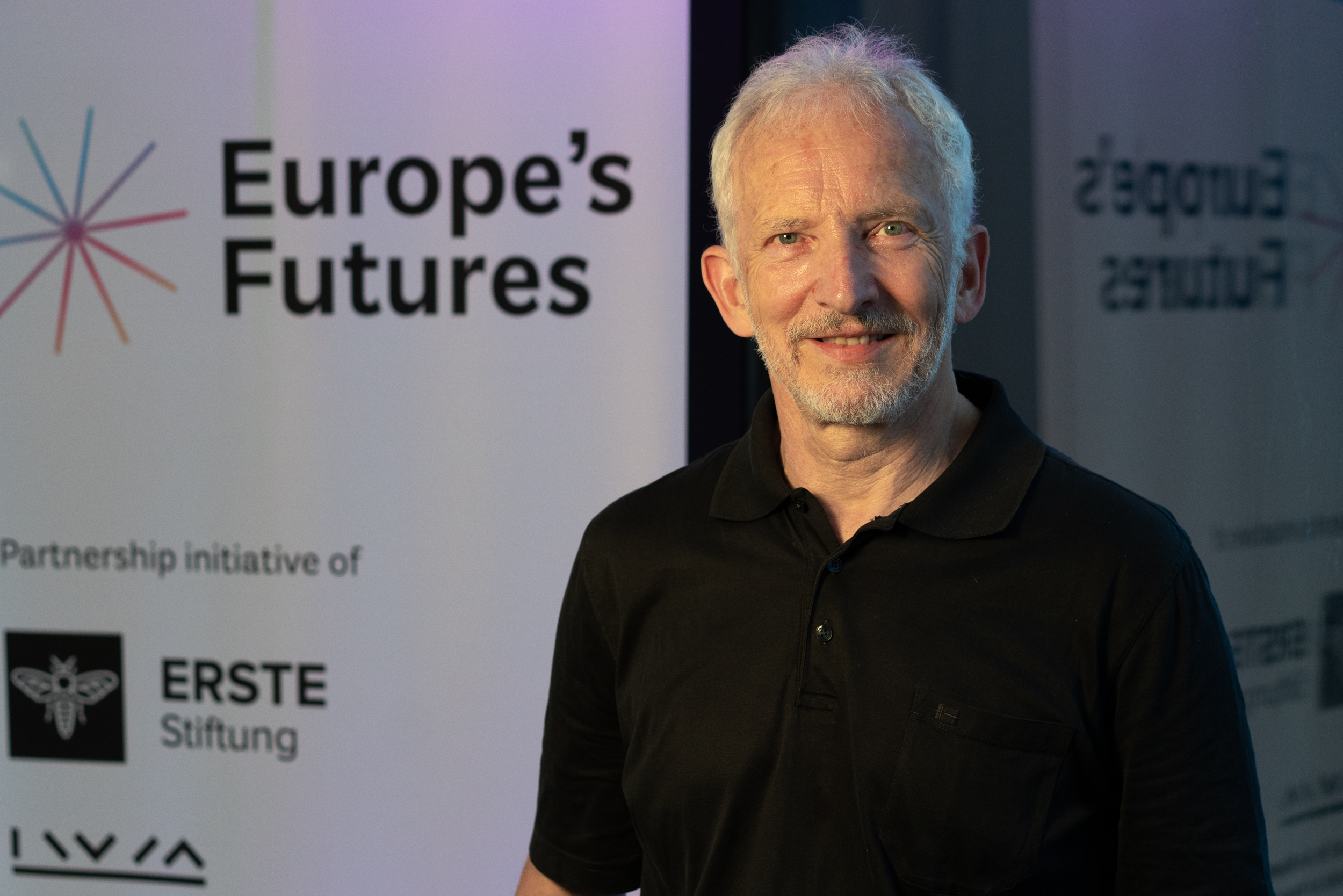
Half the headlines in European media stress the “surge of the radical right,” while the other half offers the comforting message that “the center is holding.” Both happen to be true. The radical right gained support but still amounts to only 25% of MEPs, and the centrist party groupings (EPP, S&D, and Liberals) easily maintained their majority. The future political orientation of the European Parliament will primarily be determined by the EPP, whose members seem tempted to imitate policies of the populist right in the belief that they could thus counter their challenge. This strategy has rarely worked in the past. An even greater threat arising from the election results concerns the shocking weakness of the political leadership in France and Germany. President Macron responded to his party’s electoral fiasco by an immensely risky political gamble, that might well bring Le Pen’s Rassemblement National into government. A similar defeat in Germany looks like having the opposite result, in the sense of deepening a sense of despondency and paralysis in the ruling coalition. Without effective leadership from Berlin and Paris the EU will struggle to cope with the multiple geopolitical and economic challenges before it. (Photo: Davor Konjikusic)
Nathalie Tocci, director of the Istituto Affari Internazionali and 2022/2023 Europe’s Futures Fellow:
.jpg)
The expectation of a right-wing surge was confirmed in Europe’s two largest countries, France and Germany. In France, Marine Le Pen’s Rassemblement National topped the polls, and Macron responded by calling for snap parliamentary elections later this month, opening the way for a possible cohabitation with a far-right government for the first time. In Germany, all three parties of the governing coalition took a beating, with the far-right Alternative für Deutschland asserting itself second after the Christian Democrats in opposition. In other European countries, like Italy and Austria, the far-right also topped the polls. Giorgia Meloni’s Fratelli d’Italia was amongst the few governing parties that raised its share compared to the national elections that brought her to power. At the same time, the narrative of the right-wing surge has been invalidated in most European countries and at the EU level. In Poland, Donald Tusk affirmed his lead over the hard-right Law and Justice. In the Netherlands, the opposition socialist-green alliance came first, overtaking Geert Wilders’ far-right PVV now in government. In Spain, Sweden, Finland, Denmark, Czechia, Bulgaria, and even in Hungary, the far-right underperformed. In Italy too, while Meloni topped the polls at almost 29%, this is a far cry from Matteo Salvini’s 35% at the 2019 European elections. This means that the “governing” majority in the European Parliament will likely remain the same, featuring the center-right People’s Party, the Socialists, and the Liberals. Like last time around, this will be insufficient for Ursula von der Leyen to be elected to a second term. She will need to win over others too. The Greens, amongst the big losers from this election, may actually be more amenable to compromise than last time, while the hard-right European Conservatives and Reformists may be more inclined to play the eurosceptic card, with Meloni seeking to build bridges to Marine le Pen. So far Meloni has avoided making choices, acting as a moderate in Brussels and a radical in Rome. The moment of truth may be approaching, clarifying the contours of European politics in the months ahead. (Photo: Davor Konjikusic)
Karolina Wigura, historian of ideas, sociologist, journalist, and 2023/2024 Europe’s Futures Fellow:
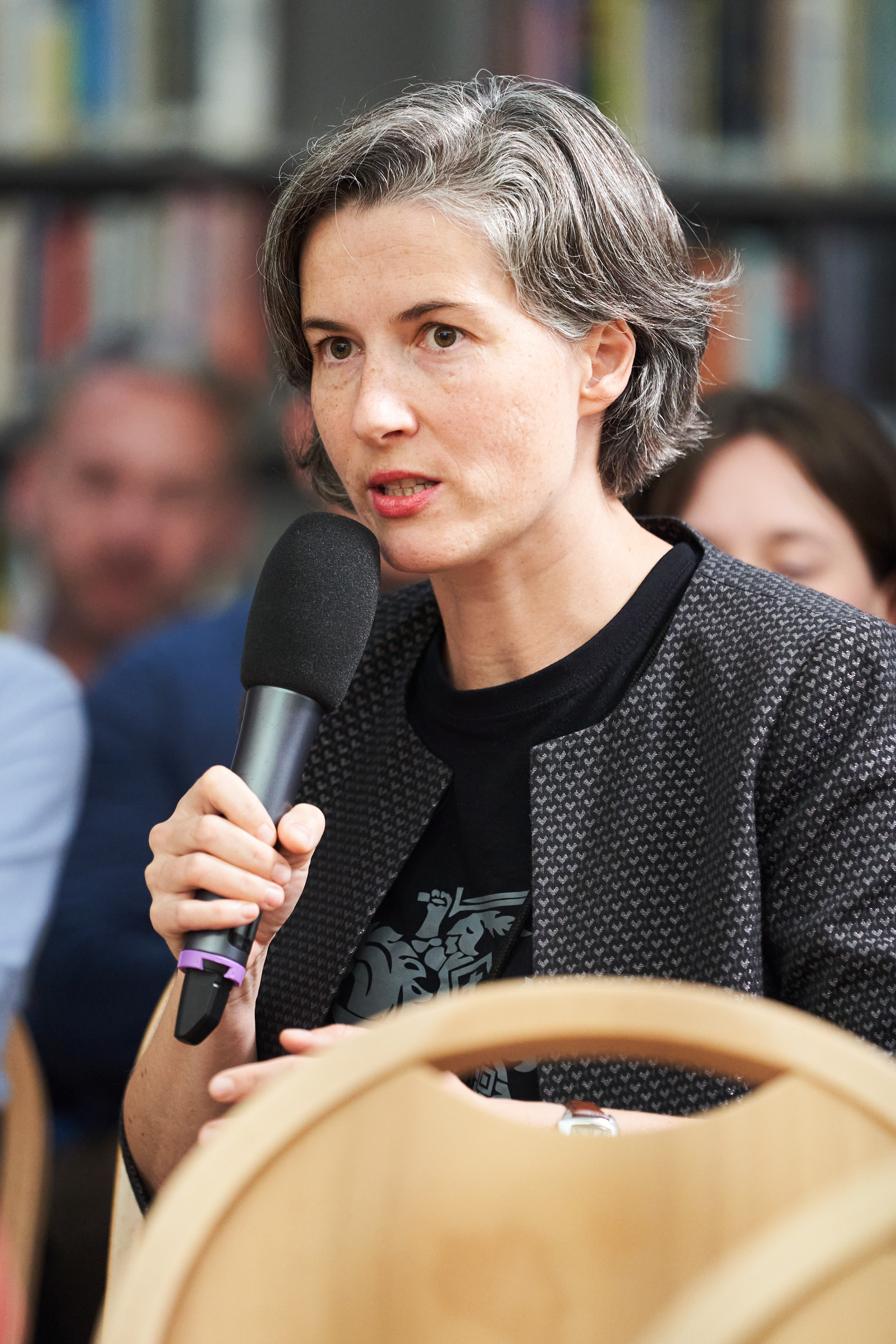
In the mid-nineteenth century, Alexis de Tocqueville described the French Revolution's roots, attributing the driving force of political and social change to an important emotion: the love for equality. This passion, he explained, was insatiable and invincible, increasingly occupying people's hearts. Reflecting on this, one wonders what feeling is currently driving European politics, particularly after the recent European elections. The rightward shift and rise of populism suggest a different prevailing emotion: the feeling of loss. As human beings, our lives are marked by perpetual loss—of youth, loved ones, jobs, ways of life, and sources of identity. However, coping with loss becomes harder when the change becomes so rapid and difficult to understand that it cannot be tamed through a predictable grieving process. The result is a longing for a stable, traditional order, even if that past is a fictional narrative. This is the story that the populists propose; it seems simple and, therefore, right. However, behind the simplicity, there is only ignorance of how to deal with the complexity and instability of the modern world. What could a better answer look like? Leaders like Emmanuel Macron and Olaf Scholz failed to address significant concerns effectively. Scholz is criticized for too few words and insufficient action, while Macron is accused of too many words and not enough action. Addressing the sense of loss requires recognizing and tackling important issues with diligence and courage. Values play a crucial role in politics, though implementing them can be challenging. The Polish-Belarusian border crisis illustrates the difficulty of balancing border security and human rights. Despite these challenges, values deserve a prominent place in political discourse and action. Not least, the EU faces a generational challenge. While it offers a high standard of living, open borders, and political freedom, it struggles to engage the younger generation, who are increasingly turning to populist parties. Are there not enough democratic mainstream supporters among young people? No, but they largely stayed at home. The European Union, it seems to follow, is not their concern or passion. Georgi Gospodinov's book Time Shelter seems ever more relevant. It highlights a growing nostalgia for the past in Europe, described as a ‘contagious’ epidemic. This longing for a bygone era, even one that never truly existed, is particularly striking on a continent that once believed itself immune to such sentiments due to its 20th-century experiences. Nostalgia for the past, Gospodinov writes, spreads best through the eye and the ear. As in the case of Covid-19, it is not age that is most important, but exposure to the virus itself. (Note: a longer version of this text in Polish was published in Kultura Liberalna. Photo: Markus Korenjak).
This publication represents the views of the author(s) and not the collective position of the Institute for Human Sciences (IWM Vienna) or the “Europe’s Futures” project.

